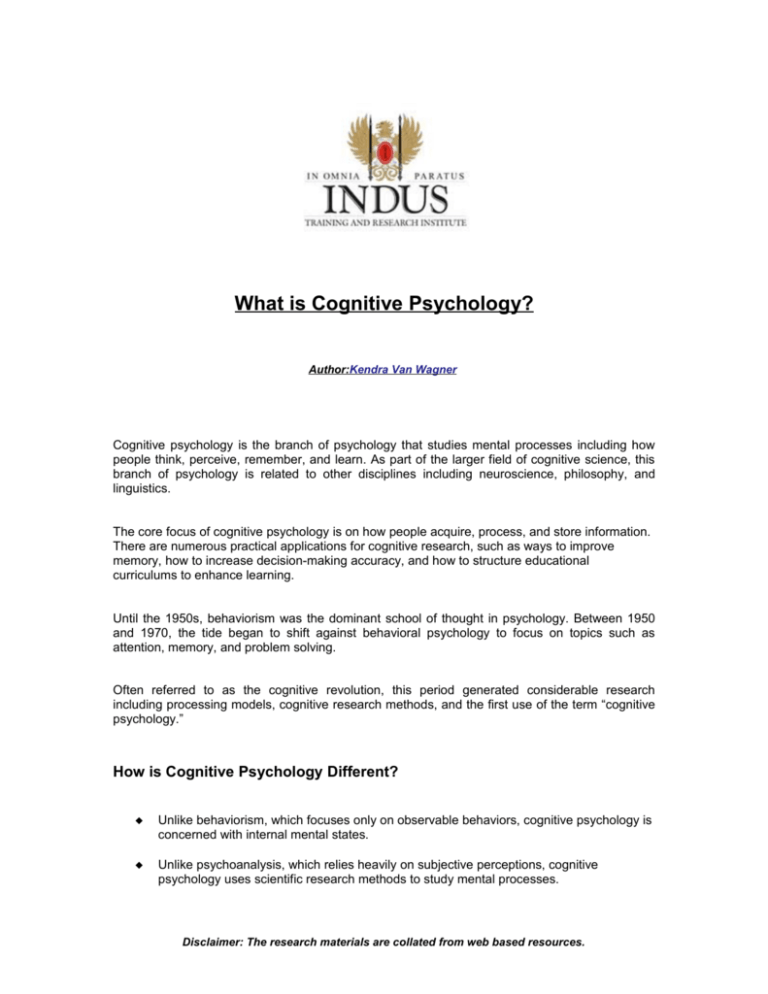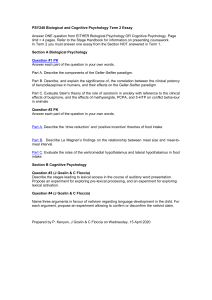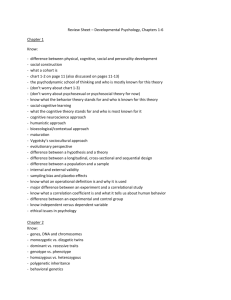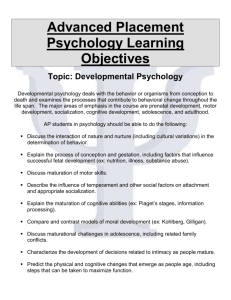What is Cognitive Psychology?
advertisement

What is Cognitive Psychology? Author:Kendra Van Wagner Cognitive psychology is the branch of psychology that studies mental processes including how people think, perceive, remember, and learn. As part of the larger field of cognitive science, this branch of psychology is related to other disciplines including neuroscience, philosophy, and linguistics. The core focus of cognitive psychology is on how people acquire, process, and store information. There are numerous practical applications for cognitive research, such as ways to improve memory, how to increase decision-making accuracy, and how to structure educational curriculums to enhance learning. Until the 1950s, behaviorism was the dominant school of thought in psychology. Between 1950 and 1970, the tide began to shift against behavioral psychology to focus on topics such as attention, memory, and problem solving. Often referred to as the cognitive revolution, this period generated considerable research including processing models, cognitive research methods, and the first use of the term “cognitive psychology.” How is Cognitive Psychology Different? Unlike behaviorism, which focuses only on observable behaviors, cognitive psychology is concerned with internal mental states. Unlike psychoanalysis, which relies heavily on subjective perceptions, cognitive psychology uses scientific research methods to study mental processes. Disclaimer: The research materials are collated from web based resources. Who Should Study Cognitive Psychology? Because cognitive psychology touches on many other disciplines, people in a number of different disciplines often study this branch of psychology. Who should study cognitive psychology? The following are just a few of those who may benefit from studying cognitive psychology. Students interested in behavioral neuroscience, linguistics, industrial-organizational psychology, artificial intelligence, and other related areas. Teachers, educators, and curriculum designers can benefit by learning more about how people process, learn, and remember information. Engineers, scientists, artists, architects, and designers can all benefit from understanding internal mental states and processes. Major Topics in Cognitive Psychology Perception Language Attention Memory Problem Solving Decision Making and Judgment Important People in the History of Cognitive Psychology Gustav Fechner Wilhelm Wundt Edward B. Titchner Hermann Ebbinghaus William James Wolfgang Kohler Edward Tolman Jean Piaget Disclaimer: The research materials are collated from web based resources. Noam Chomsky David Rumelhart James McClelland Disclaimer: The research materials are collated from web based resources.








